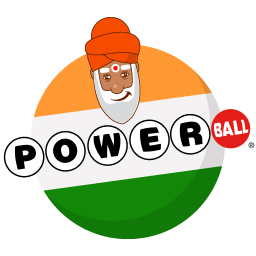The lottery is allowed in Hinduism, but it varies according to your interpretation of the texts. Depending on who you ask, considering if the lottery is allowed in Hinduism may result in instant defensive arguments against it or that it varies according to your acts. In order to vanquish your doubts and concerns, we have collected every useful information about gambling in Hinduism, and consequently the lottery, and revealed the truth!
Religion and Gambling in Hinduism
Hinduism is an ancient religion, which instantly leads to the argument that it could not foresee gambling. While that could be true for online lottery and lotteries in general, as we know today, gambling has always been present. Either for fun or as a dispute, it is present in our history from the beginning as far as records go, and representations of it exist in Hinduism.
Therefore, we can infer if the lottery is allowed in Hinduism through parallels and not explicit declarations.
For starters, we can infer a positive inclination towards healthy gambling, considering that gambling is common on Diwali. Legend says that the Goddess Parvati played dice with Lord Shiva, her husband and that from that day on, anyone who gambled on Diwali like them would prosper through that year.
Karma
By following the concept of karma, by which we should not harm or wish harm to others, not even in thought, it would be possible to gamble and not cause negative effects on others.
Playing irresponsibly and becoming addicted, on the other hand, has clear negative consequences in the life of the gambler and those connected to that person. Therefore, from that perspective, gambling is negative if it takes priority in your life. If not, then there is room to proceed with analyzing the history and the references in Hinduism to generate a conclusion.
Let’s have a closer look at the relationship between gods, their sayings about gambling, and the history of Hinduism before drawing any interpretations.
Gambling in the History of Hinduism
Hinduism is filled with stories of gods gambling. Although they did not have lotteries to participate in, the concept is the same. Those references are ideal if we want to understand if the lottery is allowed in Hinduism.
Gods and Dice Games
Dice is the most common form of gambling to be found in our stories. Gambling during the Diwali festival is not a coincidence, as its roots exist in the dice game between Parvati and Shiva. According to Skanda Purana Book II, Section IV, Chapter 10, verse 20:
Also Krishna was described as being fond of gambling, as some passages mention. One of them, as an example for our discussion, would be:
“Nārada then entered the palace of another of Lord Kṛṣṇa’s wives, my dear King. He was eager to witness the spiritual potency possessed by the master of all masters of mystic power. There he saw the Lord playing at dice with His beloved consort and His friend Uddhava.”
- Srimad Bhagavatam 10.69.19-22
Balrama, considered to be an avatar of Vishnu, was considered to be fond of the activity – again, with the dice. The stories tell that he played against Rukmi and lost several bets, only to win in the last and biggest one. Accused of cheating, Balarama is said to kill Rukmi. That specific story is not very enriching from the optimistic point of view of gambling in Hinduism, though.
Hindu Scriptures
When analyzing Hindu scriptures, it is possible to determine that such texts find even less matching to our contemporary questions than dice games between the Gods. They talk about playing on gambling houses allowed by the King only and sharing taxes. It can be concluded that those scriptures hold a lot of connection with that given moment in the past.
From them, we can draw a parallel with our modern world. For example, we could understand that we should only play legal lotteries and respect the lottery taxes. In other words, to avoid lotteries of unknown or suspicious sources and not evade taxes on winnings. All of that, of course, while still preserving responsible gambling against addiction and not causing any negative effects on others or our own lives.
Does Hinduism Allow Playing the Lottery?
The Gods played dice, and at least for one moment, the Diwali, it should be okay to gamble. Also, the Hindu scriptures impose certain limitations but do not ban them. However, the arguments against gambling in Hinduism find their strongest support in certain passages where there is room for interpretation. For example,
(…) 13 Play not with dice: no, cultivate thy corn-land. Enjoy the gain, and deem that wealth sufficient. There are thy cattle there thy wife, O gambler. So this good Savitar himself hath told me.”
From that passage, we can understand that trying to make an easy living from gambling is considered to be wrong. Instead, we should pursue gain and enough wealth from work – there referred to as farming, but applicable to other forms of work nowadays.
Positive Vs. Negative Passages
We can also find passages that are more strict and directly forbid gambling, and therefore the lottery, as a negative activity in Hinduism:
It is not impossible to find a positive aspect of gambling in the texts:
- AD 2.26.8
Therefore, authors seem to differ in their opinion on whether gambling and lottery are allowed in Hinduism. It is important to understand that we are living in different times from most of those passages and, through no cheating and responsible play, the lottery can be a simple source of fun to many.
You may understand the allowance of gambling in Hinduism in certain parts, such as during Diwali, as an opening to play the lottery and consider it to be Dharma. What we can definitely conclude is that losing control or prioritizing forms of gambling like the lottery is Adharma.
Considering we can all connect with the universe, focus on your mantras to find your answer from the knowledge you gathered here.
Indian Lottery Law vs. the Hinduism Law
If Hinduism is not strictly affirmative when it comes to the allowance of the lottery, we understand that following the law is important. Therefore, if you live in an Indian state where all forms of lottery or a specific one are banished, you shall not play it. On the other hand, when the local law allows and offers it, which is the case of over a dozen Indian states, that should not be considered Adharma.
FAQ
Anyone who is at least 18 years old and does not live in an Indian state that forbids it may play the lottery if they understand that they are allowed to according to the texts we gathered here.
There is no certainty and one universal rule on whether gambling and lottery in a responsible way are allowed. Consequently, there are always those who prefer to avoid and condemn it.
Lotteries are a form of gambling in any aspect. Considering that Hinduism is an ancient religion, we need to infer that the lottery is the same as gambling.
That cannot be confirmed or denied, which means everyone may consider the information collected here and draw their own conclusions.






